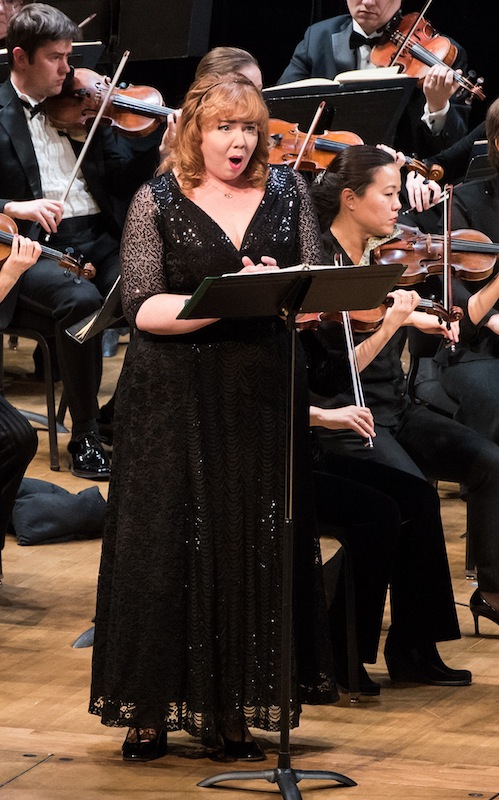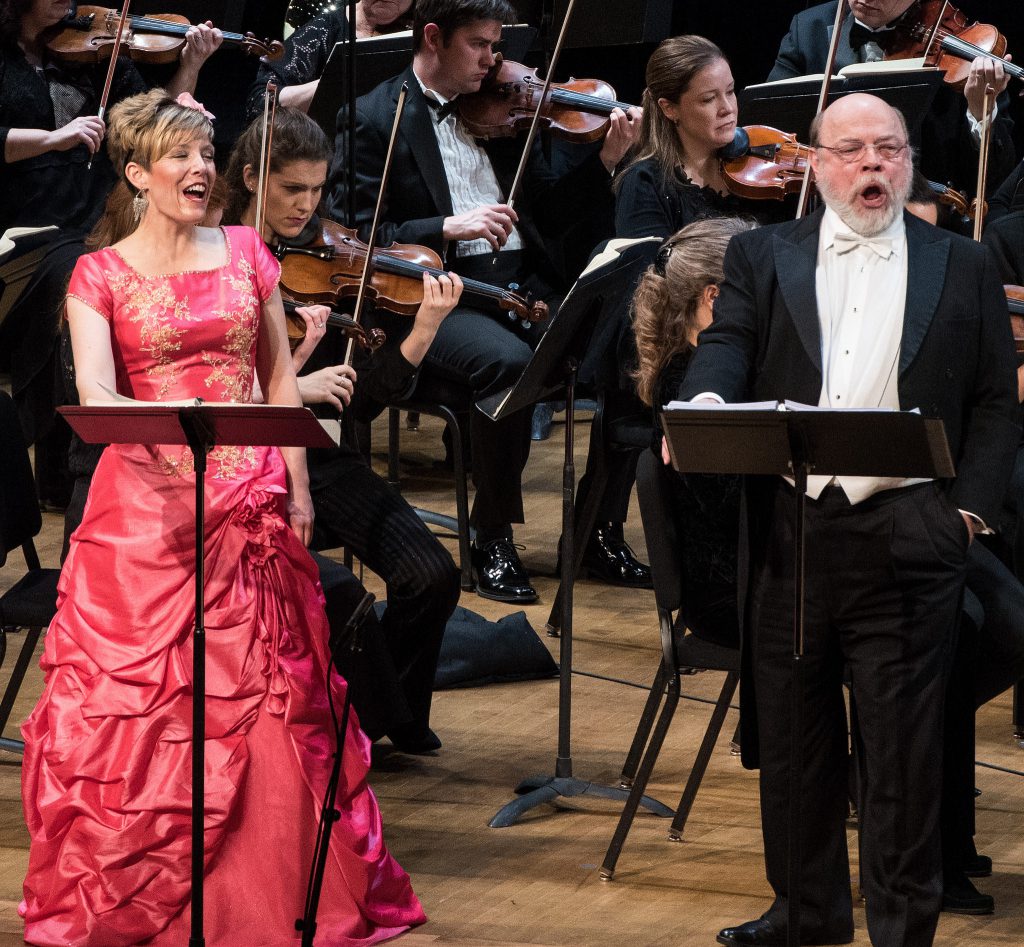WCO cast shines brightly in Beethoven’s fascinating “Leonore”

Marjorie Owens sang the title role in Beethoven’s “Leonore” Sunday with Washington Concert Opera. Photo: Don Lassell
When Beethoven composed Leonore, he did not know it would be his only opera. Disappointed by the work’s failure, Beethoven revised it repeatedly over the course of the following decade, finally settling on the version known as Fidelio in 1814. In a local first, Antony Walker led a performance of the 1805 original with his Washington Concert Opera Sunday evening at Lisner Auditorium.
As Beethoven’s first draft in reaction to Pierre Gaveaux’s Léonore, revived in its modern premiere by Opera Lafayette last month, this 1805 Leonora is worth revisiting. The experience made clear that Beethoven had jettisoned some wonderful music in shortening the opera from three acts to just two, but that some of the changes were definite improvements.
Soprano Marjorie Owens was a major discovery when she starred in Strauss’s Ariadne auf Naxos at Wolf Trap Opera in 2008, and her voice has blossomed in the intervening years. In the title role she was intense and refined, an aristocratic presence with a voice of silken softness as well as laser-focused volume that sailed over the massed instruments and chorus. Her Act II showpiece, “Abscheulicher… Komm, Hoffnung,” complete with a sort of accompanied melodrama introduction, was a dramatic highlight. The only shortcoming was a slight lack of agility in melismatic passages.
As Florestan, tenor Simon O’Neill brought the same heroic power he displayed in the role in the concert version of Fidelio heard from the National Symphony Orchestra in 2012. That vocal quality, a certain leathery toughness, communicated the nobility of the character, the revolutionary’s political inflexibility.

Celena Shafer and Eric Halfvarson in “Leonora.” Photo: Don Lassell
The rest of the cast was also fine, beginning with the happy return of soprano Celena Shafer, not heard with Washington Concert Opera since a stunning turn in the title role of Massenet’s Esclarmonde in 2005. Having taken a long break from performing to raise her children, Shafer was still in powerful and beautiful voice as Marzelline, the jailer’s daughter. Alan Held and Eric Halfvarson were reunited, a year after Washington National Opera’s Ring Cycle, as a venomous Don Pizarro, who has imprisoned Florestan, and Rocco, the good-hearted jailer.
Promising young singers made excellent contributions in the smaller roles, too. Jonas Hacker showed an attractive tenor voice and sure musical instincts in the comic role of Jaquino and as the First Prisoner in the Prisoners’ Chorus. Rising bass Nicholas Masters displayed considerable vocal gravitas as Don Fernando and the Second Prisoner.
Walker clearly believes in this first version of the opera, and the ensembles that Beethoven cut were all worth reinstating. At the same time Beethoven made other decisions with good reason, beginning with the original overture. Starting off with a sour unison, the orchestra did not help its case, and the over-reliance on tense harmonic shifts and dramatic crescendi only underscored the overture’s excessive length.
Solos for violin and cello in the Act II duet between Marzelline and Fidelio suffered from lapses of intonation and rhythmic unity, but the four horn players played their crucial parts with admirable accuracy and subtlety. The orchestra was also not quite together, especially in the strings, in the introduction to Florestan’s prison scene in Act III.
It was a nice gesture to have the chorus come to the front of the stage for some of its parts, especially as the prisoners seeing the light for the first time in the famous Prisoners’ Chorus. An assistant conductor placed at the back of the hall did his best to coordinate these scenes by mirroring Walker’s beat. Yet bringing out the entire chorus for the finale, which is actually stronger in Beethoven’s original version, had the unfortunate side effect of drowning out the orchestra and the soloists.
Washington Concert Opera will devote its next season to bel canto opera, with performances of Bellini’s La straniera in November 2017 and Donizetti’s Maria di Rohan in February 2018. concertopera.org; 202-364-5826.


